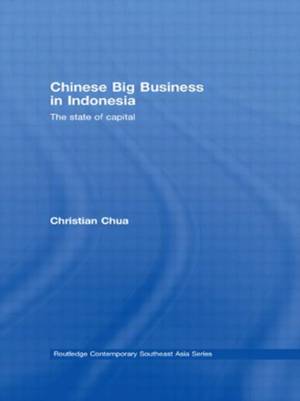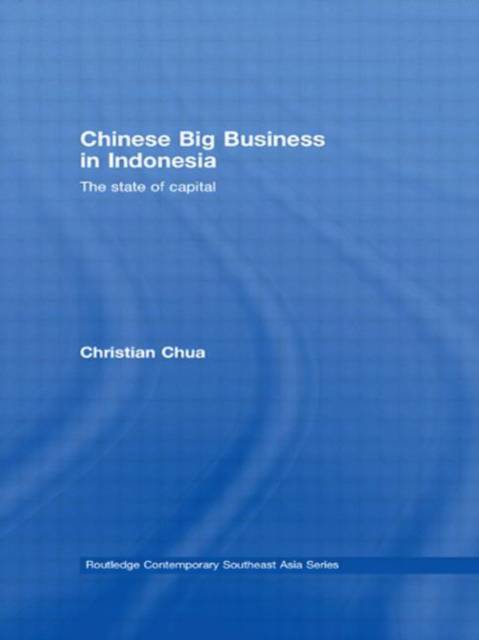
- Afhalen na 1 uur in een winkel met voorraad
- Gratis thuislevering in België vanaf € 30
- Ruim aanbod met 7 miljoen producten
- Afhalen na 1 uur in een winkel met voorraad
- Gratis thuislevering in België vanaf € 30
- Ruim aanbod met 7 miljoen producten
Omschrijving
The disintegration of Indonesia's New Order regime in 1998 and the fall of
Soeharto put an end to the crude forms of centralised authoritarianism and
economic protectionism that allowed large Chinese conglomerates to dom-
inate Indonesia's private sector. Contrary to all expectations, most of the
major capitalist groups, though damaged considerably by the Asian Crisis,
managed to cope with the ensuing monumental political and economic
changes, and now thrive again albeit within a new democratic environment.
In this book Christian Chua assesses the state of capital before, during,
and after the financial and political crisis of 1997/1998 and analyses the
changing relationships between business and the state in Indonesia. Using a
distinct perspective that combines cultural and structural approaches on
Chinese big business with exclusive material derived from interviews with
some of Indonesiaâ (TM)s major business leaders, Chua identifies the strategies
employed by tycoons to adapt their corporations to the post-authoritarian
regime and provides a unique insight into how state-business relationships
in Indonesia have evolved since the crisis.
Chinese Big Business in Indonesia is the first major analysis of capital in
Indonesia since the fall of Soeharto, and will be of interest to graduate
students and scholars of political economy, political sociology, economics
and business administration as well as to practitioners having to do with
Southeast Asian business and politics.
Specificaties
Betrokkenen
- Auteur(s):
- Uitgeverij:
Inhoud
- Aantal bladzijden:
- 192
- Taal:
- Engels
- Reeks:
- Reeksnummer:
- nr. 17
Eigenschappen
- Productcode (EAN):
- 9780415450744
- Verschijningsdatum:
- 1/04/2008
- Uitvoering:
- Hardcover
- Formaat:
- Genaaid
- Afmetingen:
- 156 mm x 234 mm
- Gewicht:
- 449 g

Alleen bij Standaard Boekhandel
Beoordelingen
We publiceren alleen reviews die voldoen aan de voorwaarden voor reviews. Bekijk onze voorwaarden voor reviews.











